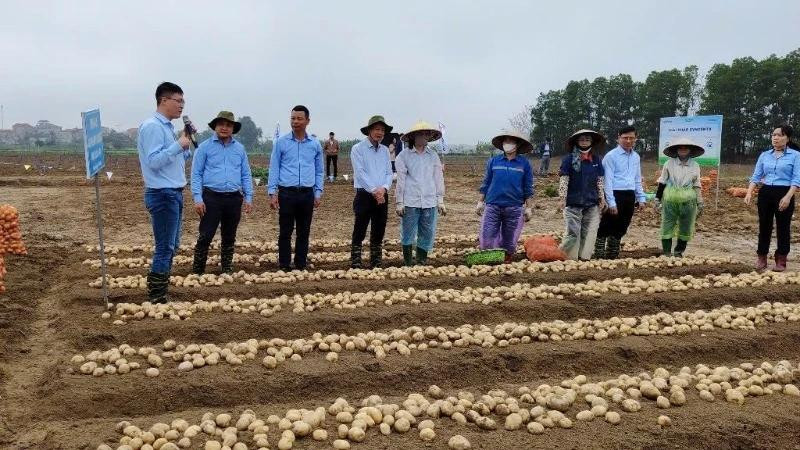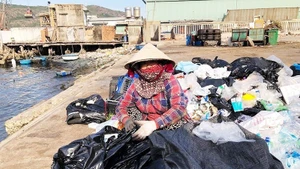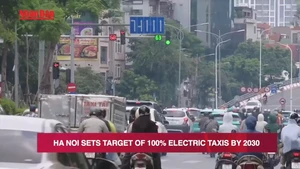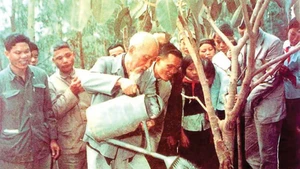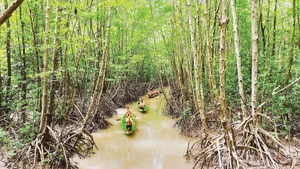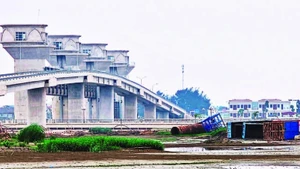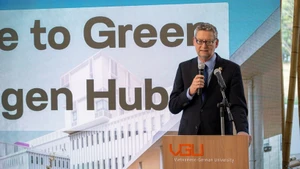Launched in 2019 in the Central Highlands and later expanded to northern provinces, this model has not only improved productivity and optimised costs but also ensured stable product consumption for farmers, contributing to the development of a modern and environmentally friendly agricultural sector.
Readiness for crop transition
According to the Vietnam Partnership for Sustainable Agriculture (PSAV), the project initially covered 400 hectares in the Central Highlands in 2019, implemented through collaboration between the National Agricultural Extension Center, PepsiCo, Syngenta, and other partners.
After five years, the potato-growing area has expanded to nearly 1,700 hectares, with an average yield of 30-34 tons per hectare, significantly higher than traditional farming methods. This success has paved the way for the model’s expansion to northern provinces starting from the 2024-2025 winter-spring season, with a total planned area of 320 hectares. The results have been very promising, with an average yield of 23-26 tons per hectare — marking an increase of 8 tons per hectare compared to the previous season.
In the 2023-2024 winter-spring season, pilot projects in Thanh Hoa and Hai Duong recorded peak yields of up to 35 tons per hectare. Expanding raw material production to the north provides farmers with more crop options, ensures stable income, and helps businesses secure a reliable supply of traceable raw materials.
Farmers from Hai Duong, Thai Binh, Bac Ninh, and other provinces participating in the recent Potato Harvest Festival at the PepsiCo Learning Centre in Que Vo, Bac Ninh, expressed enthusiasm for the upcoming planting season. They shared their experiences and learned about sustainable, low-emission, and high-tech farming practices.
Doan The Anh, Director of Truong An Agricultural Cooperative (Yen Lam residential areas, Bang An Ward, Que Vo Town), noted that applying high technology and mechanisation to potato farming has yielded significantly better results than traditional methods.
"With traditional potato farming, yields only reached 15-18 tons per hectare. This year, after adopting the new method, productivity doubled to 36 tons per hectare," Anh stated. While the initial investment is relatively high (around 200 million VND per hectare), it reduces labour and production costs, and significantly enhances potato yield and quality. He also expressed his willingness to convert all 300 cooperative plots to this sustainable farming model.
Nguyen Van Doan, a farmer from Thai Tan Commune, Nam Sach District, Hai Duong Province, shared his excitement about transitioning one hectare of his carrot field to potatoes in the past winter-spring season, achieving a yield of 28-29 tons per hectare. He felt completely secure with his investment, as PepsiCo guaranteed product purchase.
Comprehensive integrated solutions
Commenting on the project's outcomes, Nguyen Kim Hanh, Director of Agronomy at PepsiCo Vietnam, emphasised that the most important achievement is establishing a production linkage for farmers, connecting them with partners to provide comprehensive solutions.
Accordingly, this closed-loop partnership ensures internationally standardised seed varieties, advanced cultivation techniques that maintain soil health, an integrated pest management system, precision irrigation, optimised fertilisation, weather monitoring systems connected to smartphones, and drone technology for crop monitoring, all the way to guaranteed product purchase.
Nguyen Thanh Tuan, Director of External Affairs and Sustainability at Syngenta Vietnam, noted that the sustainable potato value chain model incorporates advanced solutions to optimise production processes.
For example, the integrated pest management (IPM) system has reduced pesticide applications by two times per season, ensuring effective crop protection while minimising environmental impact. Additionally, the use of drones for pesticide application has helped farmers reduce water usage for pesticide mixing by over ten times compared to traditional methods, lowering production costs and improving resource efficiency.
Currently, Vietnam meets only 30-40% of its domestic potato demand. In 2023, the country imported over 134 million USD of fresh potatoes from Australia, the United States, Germany, the Netherlands, and China, ranking first in potato imports in the Asia-Pacific region. This highlights the potential of expanding potato farming through the PPP model to enhance competitiveness and reduce import dependency.
Nguyen Viet Ha, General Director of PepsiCo Foods Vietnam, confirmed the company’s commitment to partnering with farmers and cooperatives to develop a potato-growing region in northern Vietnam. This will ensure a stable raw material supply for PepsiCo’s new factory in Ha Nam, which is set to open at the end of this year.
The company has pledged not only to guarantee product purchases but also to collaborate with partners to provide high-quality seeds, fertilisers, and plant protection products. Additionally, it will work with banks to offer financial solutions and maximum support for farmers and cooperatives joining the model.
Recognising the model’s effectiveness, Le Quoc Thanh, Director of the National Agricultural Extension Centre, stated that the center will collaborate with partners to develop technical guidelines for sustainable potato farming. It will continue to play an active role in providing technical support, training farmers and cooperatives, and mobilising resources from businesses and international organisations to expand the model to more localities.
The collaboration with PepsiCo, Syngenta, and other partners has fostered an innovative agricultural ecosystem that effectively applies high technology, enhances farmer capacity, and optimises the value chain. This serves as a crucial foundation for driving agricultural innovation forward.
